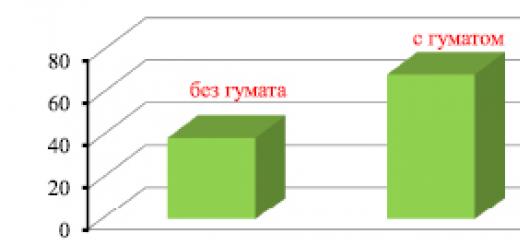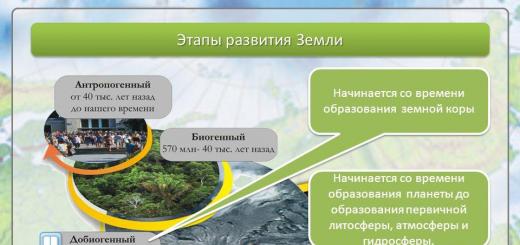If you want to master a language in a short time, but don’t know, How, this article is for you. Here we will pay attention to an unusual way of memorizing the first phrases, which are attractive because when they are memorized, 2-3 words are immediately stored in memory instead of one. This is very convenient, and with this approach English begins to seem like an interesting and quite logical language.
How to quickly learn a lot of English words with minimal effort
Let's move on to a list of words that will show you How Can learn a lot of English words quickly in a fairly short time frame. Please note that this is not the entire list of such words. There are more than a hundred of them on the social networks of our online school, but I will give you the most interesting and easy-to-remember examples.
1) cup(cup) + cake(cake) = cupcake(cake)
2) master(master) + piece(piece) = masterpiece(masterpiece)
3) tea(tea) + spoon(spoon) = teaspoon(tea spoon)
4)lip(lip) + stick(stick) = lipstick(lipstick)
5) sun(sun) + glasses(points) = sunglasses(sunglasses)
6) traffic(movement) + jam(jam) = traffic jam(traffic jam)
7) fire(fire) + place(place) = fireplace(fireplace)
8) honey(honey) + moon(moon) = honeymoon(Honeymoon)
9) book(book) + case(suitcase) = bookcase(bookshelf)
10) super(super) + market(market) = supermarket(supermarket)
11) pan(frying pan) + cake(cake) = pancake(Crap)
12) key(key) + board(board) = keyboard(keyboard)
13) cottage(country house) + cheese(cheese) = cottage cheese(cottage cheese)
14)head(head) + phone(phone) = headphones(headphones)
15) head(head) + master(master) = headmaster(head teacher)
16) ear(ear) + ring(ring) = ear-ring(earring)
17) bell(bell) + tower(tower) = belltower(Bell tower)
18) water(water) + melon(melon) = water melon(watermelon)
19) arm(hand) + chair(chair) = arm-chair(armchair)
20) pig(pig) + tails(tails) = pigtails(braids)
How Can learn a lot of English words quickly using a list like this? Just try not to memorize a lexical unit, but pay attention to the composition of the word. Very soon, this practice will develop into a habit, and learning a foreign language will turn into a pleasant pastime, and not a boring process.
How to learn English words in 15 minutes?
If you want to know how to learn English words in 15 minutes, then you should remember about frequency and repetition. You can really remember a lot in 15 minutes, but there's no point in trying if you don't plan to do it every day. Repetition plays a key role in remembering words and rules. Therefore, you should not forget about it.
How to learn English words in 1 hour?
For those who are serious, I can give some recommendations: how to learn English words in 1 hour.
1) Repeat a new word or list of words out loud several times
2) Check if it is a compound word that can be divided into 2 parts. If yes, then find out the translation of all components.
3) Make sure the word does not play multiple roles in the sentence. For example: "paint" can be translated "dye", And "paint".
4) Try to come up with an association for a new word that you want to remember. For example: "clever" very similar to the name of the tree - "clover", but actually translated "smart".
5) Come up with your own sentences with new words that you want to remember. This will help you quickly reproduce the appropriate phrase at the right time.
Need lessons to practice? Contact us on Skype - fluentenglish24
We will not only tell you how to quickly learn a lot of English words, but we will also help you speak a foreign language!
- Back
- Forward
You have no rights to post comments
Vocabulary matters a lot. If you know the words, you understand what it’s about, even without knowing the intricacies of grammar. If you don’t know the words, you communicate like Ellochka the cannibal. Today we are talking about how to remember a lot and for a long time.
Conventional learning of words has low efficiency. For example, over 11 years of the school program, students memorize an average of 1-1.5 thousand words. To speak like a native speaker, you need to know at least 8 thousand words; the Upper-Intermediate level requires knowledge of 6 thousand words. To understand CNN news, which is created taking into account the interest of a foreign audience, you need to know at least 3 thousand words.
Using traditional methods, it is easy to learn up to 10 words in one go, but only a few can remember 30 or 50 new words in one day.
Everyone who learns a foreign language faces the following problems:
Words are quickly forgotten if they are not repeated;
- it is very difficult to learn many words at once;
- people simply don’t know how to learn words effectively;
- when a word enters short-term memory, a person stops working with it.
Why is that?
German psychologist Hermann Ebbinghaus conducted research on “pure” memory - memorization that is not influenced by thinking processes. To do this, the scientist proposed a method of learning meaningless syllables consisting of two consonants and a vowel between them, which do not evoke any semantic associations.During the experiments, it was found that after the first error-free repetition of a series of such syllables, forgetting occurs very quickly. Already within the first hour, up to 60% of all information received is forgotten; 10 hours after memorization, 35% of what was learned remains in memory. Further, the process of forgetting proceeds much more slowly and after six days about 20% of the total number of initially learned syllables remains in memory, and the same amount remains in memory after a month.
After a series of experiments, Ebbinghaus developed the Forgetting Curve (also called the Ebbinghaus Curve) in 1885. Based on it, the following conclusion was made: for effective memorization, repetition of memorized material is necessary.

To remember information for a long time, after studying it, you need to repeat it at least five times:
- 20-30 minutes after the first study;
- after a couple of hours;
- the next day;
- in 1-2 weeks;
- 2-3 months after the fourth repetition.
Other traditional methods
- Learn with the help of a dictionary, in orderBoring and ineffective. The words start the same but have different meanings, making them difficult to remember. Also, you don't know in what context the word is being used.
If you want to use a dictionary, it is more convenient to make a list of words on a specific topic, for example, select the category “Clothing” or “Travel”. A community of related words is easier to remember.
- Learn using sticker cards
On one side of the card we write the word in Russian, on the other - in English. You need to spend time making cards, but you can carry them with you and repeat the words whenever you have a free minute. If you don’t want to bother with paper, you can download a special application to your smartphone.
- Learn words in context
For example, when watching TV series or movies. For beginners, it’s better to start with TV series; you can watch them with subtitles. There is no need to memorize an unfamiliar word separately. Write down or copy an entire sentence from the subtitles at once. This way you will remember in what situations it can be used.
Method of associations or “Mnemonics”
The Mnemonics method is gaining popularity.The main principle of this technique is to remember information by building visual connections between a word and its meaning.

Facts about mnemonics:
Scientists have found that the human brain is best at creating visual connections.
- The method appeared 2.5 thousand years ago. It was used by the ancient Greeks, including the famous thinker Socrates.
- Mnemonics gives quick results. Any person, if desired, can achieve a memorization speed of 100 words per hour or higher.
Why mnemonics?
- The visual lobes, which are most involved when using this technique, are the most powerful in the human brain, since they contain the most neurons.- Any word in a person’s head has a meaning in the form of a specific picture. By building associations, neural connections arise; they can be compared to a wire connecting a word to a picture, for example, when we hear the word “dog,” we imagine a dog.
- Associations are the shortest way to access any information. For example, you heard a familiar song, and you remember a situation in which you heard it before.
- This technique has shown really excellent results in practice - after a few training sessions you can remember 100-300 words per approach.
Algorithm
Step 1Present a bright, concrete picture. Let's say you want to learn the word fist, you need to vividly imagine a clenched fist.
Step 2
Find an association with a similar sound to a Russian word. Fist in English fist. You can, for example, imagine a pistachio clenched in your fist. Absurd and funny associations are best remembered: the brighter the better. It is also worth creating your own associations, as they will be more vividly remembered.
Step 3
Combine the association with the picture. The picture depicting the word and the association picture must be visually connected. For example, remembering the word crown, you can imagine a crane lifting a crown. If the crane and the crown are simply next to each other in your imagination, there will be no effect; it is better to imagine that the crane is lifting the crown by the edge or on a rope. It is better to imagine a huge crown, since large objects are better remembered. You can also add a certain sound or music playing in the background, which you would associate with the crown.
Step 4
Repeat the memorized word out loud 4-5 times in English, raising your eyes slightly upward, as if looking at the bridge of your nose. Scientists have found that with this eye position, the largest number of neurons are activated. You need to keep your eyes open, if you remember with your eyes closed, then you will remember with your eyes closed.
Step 5
Repeat the words - at least after an hour or two, every other day and every month. High-quality associations are stored in memory for a month. If you do everything according to the algorithm with repetition, you will remember the words for years.
Common mistakes
- Trying to learn everything at onceMany people start studying intensively, wanting to learn English in a week or a month, and quickly give up. It is much more effective to allocate a little time, for example, half an hour, but every day. This way the brain will have time to process the information and there won’t be too much interruption that the word will be forgotten. At the same time, your memory will be in good shape, and there will be no overload.
- Immediately learn complex words that do not correspond to the level of knowledge of the language
If a word is difficult to even pronounce, there is no point in learning it. Beginners need to learn the most common words, this is about 400 words. More than half of them are verbs. Start easy and increase difficulty.
- Don't repeat what you've learned
Without repetition, new words are forgotten.
- Memorize without understanding the context
You won't be able to use new words if you don't know in what situations they are used.
- Learn incorrect pronunciation
You must first listen to the correct pronunciation, even if you know the reading rules well. A good site for listening is wooordhunt.ru.
Experience has shown that after 300 words learned, errors disappear, associations appear in the imagination very quickly and the ending of a word is well remembered, even if the association is consonant only with its beginning.
- It is important to learn quickly, without delaying.
For example, choose a thematic list, set a timer and read all the words in one minute.
- Increase the load gradually.
- Move from simple to more complex words.
Choose the simplest ones that are easiest to learn. Then take five minutes to learn them and rest for five minutes. Then learn more complex words from this list.
- Combine words into groups by topic and part of speech.
It is better to learn nouns first, then adjectives, then verbs.
And the most important thing
- Share your successes with friends to keep you motivated.
- Reward your successes to get used to the fact that learning is good.
- Develop memory in general, not only in English.
- Practice the words you've learned in conversation clubs to finally consolidate the words in context.
Bonuses for Habr readers
Online coursesWe are giving you access for a year to the English course for self-study “Online Course”.
To gain access, simply go to .
Individually via Skype
Among our students there are already students from GeekBrains, ITVDN, Softengi, Netology. Join us! And we wish you only successful interviews and career success.
Tags: Add tags
The main problem when learning any foreign language is memorizing words. To solve this problem quickly and remember many constructions, the student takes up to 80% of the time and effort to master the active minimum. At this stage, the task of establishing competent pronunciation, fast and correct reading, and developing the skill of listening to foreign speech is solved. learning English words When starting to learn English, a person, first of all, asks a series of questions: how to make learning easier and more effective, how to memorize English words quickly, how to learn many words? Of course, modern linguists and polyglots have created a lot of ways to learn hundreds and thousands of lexemes, many phrases, and figures of speech quickly.
I'll tell you about the most popular ways to learn something:
- Associations
- Learning by heart
The association technique is very simple. For each English word or concept, a similar-sounding Russian word is selected: lemon - lemon, nose - nose, tangerine - tangerine or mandarin. Our language even has words borrowed from foreign speech, and they have long been familiar to you: airport - airport, recruit - recruit, recruit, autobus - bus, aviation - aviation. Some neologisms also took English terms as their basis: browser, Internet, monitor, office, printer.
Therefore, you will always find something to associate with the concepts that you have to learn. In addition, a large number of English signs, like in Russian, consist of two bases:
- Overall - everywhere: over - above, above, excessively all - all, entirely
- Thunderstorm - thunderstorm: thunder - thunder storm - storm, storm (storm with thunder)
- Exchange - exchange: ex - former change - replacement, change
- Watermelon - watermelon: water - water melon - melon (water melon)
You can also associate situations. For example, to remember the word "fist" (fist), imagine a large pistachio that you smash with your fist.  learning words in English As for learning by heart, it is effective in two cases - if words are classified by consonance, when a group of words is similar in the first or last words. Or teach constructions in the second way - according to thematic classification, which is closer to me personally. This group also includes the most commonly used words and phrases. However, it is better to quickly fix words that are difficult to remember in memory by choosing a consonant analogue.
learning words in English As for learning by heart, it is effective in two cases - if words are classified by consonance, when a group of words is similar in the first or last words. Or teach constructions in the second way - according to thematic classification, which is closer to me personally. This group also includes the most commonly used words and phrases. However, it is better to quickly fix words that are difficult to remember in memory by choosing a consonant analogue.
How to learn 100 words a day?
It is better to divide the process into 2 stages.
- Divide all the concepts that you are going to learn into one of the classifications: theme, consonance, associations
- Take the first hundred with translation in Russian
- Divide this portion into 5 equal parts
- Several times, before memorizing, read the first 20 in order, trying to remember the translation at the same time
- Don't spend more than 2 seconds learning one word
- Cover the transfer with a piece of paper
- Test yourself
- By tapping a rhythm to yourself with a pencil or using a metronome (1 sec), achieve recognition of each word in time with a rhythmic beat
- Immediately move on to the next portion - learn the next 20
- Repeat the steps and so on until the end of 100
- The clock should be in front of your eyes. Record the time you spent learning each twenty.
- Perform an easy check of all hundreds
- Just read the words you've been taught
- Use a template: close the translation, leaving the original
 learning English words Notes:
learning English words Notes:
- Don't look back, repeat the words all the time and increase your daily portion
- The serving size should be increased gradually - from 100 to 500, from 500 to 1000. However, first make sure that the method is suitable for you and really helps you
- You need to learn only in one direction - that is, when you see an English word, remember Russian, and not vice versa
- The first 20 may take longer than the other group due to the newness
- Quickly memorizing a large number of words does not mean learning a language, you need to learn how to use them correctly in conversation
- But knowledge of English phrases is the basis for further study of the English language.
Quick learning of English words should also be parallel to the development of skills and abilities in constructing sentences, listening to English speech and establishing correct pronunciation. So have a good start!
Do you want to know how to learn English words quickly and easily? We'll tell you how many words you need to know, where to get them, what tools to use, and how to learn it all. Use at least a few tips and you can expand your vocabulary.
All students are interested in the question: “How to learn English words?” The more vocabulary we know, the better we understand what the heroes of our favorite English films are talking about, what is written on the Tate Modern museum plaques, and how favorable the terms of the deal are offered by our partners from the USA. Today we will give some recommendations that will help you effectively learn new vocabulary.
How many English words do you need to know?
To test your vocabulary, we recommend that you take the Online English Vocabulary Size Test (immediately click on the Start button) or Test Your Vocab. It will show you your estimated vocabulary, which you can compare with the average scores of native speakers and English learners. On average, 3,000 - 4,000 words will be enough to communicate on most topics.
However, we want to warn you: you should not rely entirely on the test results. It can only give a rough estimate of your vocabulary.
2. Special textbooks
Textbooks to increase your vocabulary will help you learn new words and common expressions in which they are used. The good thing about the manuals is that they provide lists of words along with examples of their use, so the words are learned in context. We have presented a detailed one, follow it to choose the best guide.
3. Lists or dictionaries of high-frequency words
How do you know whether it’s worth remembering the next new English word you come across? It may have fallen out of use or is rarely used. You can refer to lists of words that are most often used by native speakers. We recommend you lists from the Oxford Dictionary - The Oxford 3000 British Dictionary and The Oxford 3000 American Dictionary. These are the 3,000 most important words any English learner should know. They have been carefully selected by linguists and experienced teachers. You can recognize these words in the Oxford dictionary itself by the key icon.

Tools for learning new words
1. Cards with words
This technique may seem old-fashioned, but it is still effective. All students at least once in their lives started flashcards and tried to learn new vocabulary from them. It's convenient and affordable: you don't need to spend money, because you write them yourself, and you can take the cards with you anywhere.
Before making cards, you need help:
- select a translation;
- become familiar with typical phrases in which the word is used;
- study examples.
Then you need to decide whether you will make paper vocabulary cards or electronic ones.
- On one side of the piece of paper we write the word in English, on the second - in Russian. We test our knowledge: translate a word from Russian into English and vice versa.

- On one side we write the word in English and paste a picture, on the other - the translation into Russian. This method is well suited for people with associative thinking. In your mind you associate a new English-language concept and the object that it refers to.

- On the one hand, we write a word in English with a Russian context, on the other hand, a word in Russian without context. When repeating vocabulary, try to translate the concept from Russian into English. And the second side of the card with the Russian context will help you with translation in the opposite direction.

- More experienced students are advised to use English-English dictionaries, such as Macmillan Dictionary. On one side we write the word in English, on the other - its definition in English. You can also write synonyms and antonyms of the concept being studied.

- How to learn vocabulary correctly? The best way to memorize English words is in context. Therefore, you can write on a card not just a word, but a sentence in which it is used. Examples of sentences can be found in electronic dictionaries, for example ABBYY Lingvo.

Electronic cards
If you find it difficult to tear yourself away from your computer, use your affection for good: create virtual stickers with words on your desktop and in a few days you will remember them well.
To create electronic vocabulary cards, we recommend you the Quizlet service, which allows you to learn words in different ways: choose the correct translation from four proposed ones, fill in the gaps in sentences and play games with words. Here you can track your progress: which words are harder for you than others, how quickly you learn new vocabulary. There is an application for iOS as well. An alternative resource is Memrise. Its free version has limited functionality, but it will be enough to create cards.
You need to constantly work with cards: review and repeat the learned vocabulary. Periodically change the cards for new ones, and after 1-2 weeks return the old ones again to repeat the words.
2. Notepad-dictionary
This method is good for those who constantly lose something: your cards are unlikely to last long :-)
You can structure your notebook the way you want. Let's give our version. Each page must correspond to a specific day. Write the dates on which the words are repeated at the top. To ensure that the vocabulary you are studying is well fixed in your memory, do not forget to train it. To do this, use the techniques we described in the article “”.
3. Mind map
You can easily learn English words of the same topic if you draw a mind map. This diagram clearly shows what topic the words relate to. And while you are drawing it, the vocabulary will be stored in your memory. A mind map might look like this:

4. Educational sites and applications
On the way to work on the subway or in line at the clinic, use every free moment to learn new words. You will find useful programs for your gadget in the article “”.
It is enough to practice 10-20 minutes daily to feel progress.
1. Combine words by topic
How to easily remember English words? Groups of words related to the same topic are usually well remembered. Therefore, try to divide words into groups of 5-10 pieces and learn them.

There is the so-called Restorff effect, according to which the human brain remembers the most prominent one from a group of objects. Use this effect to your advantage: in the group of words on the same topic “introduce a stranger” - enter a word from a completely different topic. For example, when studying words on the topic “Fruits”, add one word from the topic “Transport” to them, in this way your studies will become even more effective.
2. Use associations and personalization
Many students love this method: to learn a word, you need to come up with an association in Russian. For example, you need to remember the word obstinacy. Break it down into three syllables: ob-stin-acy, which means “stubborn, like a donkey against a wall.” The word shoot can be remembered as “the jester shoots.” You can make up convenient associations yourself, the main thing is that they are understandable to you and easy to remember. This will make it easier for you to increase your English vocabulary.
Training will be effective if you not only make a verbal association, but also visualize it: when pronouncing the word shoot, imagine this shooting jester, let the image turn out to be as funny and memorable as possible. Even better is a dynamic picture with your personal presence: you imagine how the jester next to you shoots someone (with a water pistol, so that the spectacle comes out comical, not tragic). The more vivid the picture, the easier it will be to remember the word.
3. Use the learned vocabulary in speech
How to learn English words correctly and not forget them? Are you familiar with the principle of use it or lose it? In order for knowledge to remain in memory, you need to actively “use” it. It is good practice to write short stories using new words. The vocabulary that is best remembered is expressed in a short, funny text written about yourself or about things dear to your heart.
If you take courses or study with an English teacher, try to insert new words into your conversation as often as possible: the more times you say a word, the better you remember it. Don't forget about spelling: try to use new words in writing.
Tell me and I forget. Teach me and I remember. Involve me and I learn.
Tell me and I'll forget. Teach me and I will remember. Make me do it and I'll learn.
Learn new words and immediately use them in your speech with the help.
4. Test your knowledge regularly
It is useful to take various tests to determine your vocabulary level from time to time. For example, some excellent picture tests (a joy for visual learners and children) are provided on the Vocabulary for learners of English page. After passing such a test, you will immediately see what is stored in your memory and which topics or words need to be repeated.
5. Follow your daily plan
7. Develop your memory
It is impossible to remember anything unless you have a good memory. Learning a language in itself trains our brain well and helps improve memory. But to make memorization easier, you can use the tips from our article “”.
8. Consider your type of information perception
Not all methods are equally good for you. Don't try to apply everything at once. Try text, video or audio formats and choose those that help you learn new words faster. This is how you will arrive at your own signature mix of techniques.

The main thing is to remember to move from theory to practice. Not only read useful tips on how to memorize English words quickly and easily, but also actively use them in everyday life, then you won’t have to rack your brains about how to improve your level of knowledge.
Do you consider cards and notepads with the words “yesterday”? Then try learning words using current British textbooks in online English courses at our school. Our students learn words and phrases in context, use them in a live dialogue with the teacher, and memorize new vocabulary easily and quickly. !
In this article we will talk about how to memorize English words and make sure that new vocabulary is learned easily. When our brain receives new information, it perceives it and then stores it. We may access the stored information in the future. If we cannot restore something, then something from the previous phases went wrong. There are several types of memory - short-term, long-term, perceptual memory, etc. The latter receives information through the work of the senses - when we see, touch, smell something. Short-term, also called working, stores small pieces of information for short periods of time. When we need to remember a word, we must use the long-term one. How to do this most effectively?
Memory is like a muscle; it can atrophy if it doesn't work. Every ability that is neglected becomes weaker. And then it disappears completely. Memory training is very important in how to learn English words quickly. The best way to do this is through constant repetition. If you want your memory to work well, then make it work a little every day. The main purpose of repetition is to make new information take root in our heads for a long time without making incredible efforts.
Please note: one of the most important rules for turning a passive vocabulary into an active one is to introduce new words into your conversational speech and use them as often as possible.
Method 1: Repeat Constantly
From all of the above, it follows that constant repetition is the key to effective vocabulary acquisition. This doesn't mean you have to spend days re-reading your dictionary. Dedicate time to new vocabulary every day; you will always have 15 minutes to look into the dictionary and make sentences with the vocabulary you need. If you have the opportunity to communicate in English, then the question “how to learn English words” should not be a problem - without delay, introduce new words (of course, when it is relevant) into your speech.
Method 2. Turn on your emotions
Emotional connection and imagination are very important in remembering new words. Emotions can even double the amount of information we remember. Be interested in what you are learning. Choose films and books in English that are interesting and exciting for you, read jokes and short funny stories. Look at the translation of your favorite songs, and then try to distinguish the words in the stream of speech. Learning doesn't have to be boring - develop your own path, following which you will be primarily interested in learning the language.
If you are just at the initial stage of learning the language, then choose films in Russian with English subtitles; instead of books, try to choose short stories that you can easily read.
Method 3: Say the words
Here is another example of how to learn English words. It is no secret that it is easier for every person to remember, guided by different senses. For example, for some it is better to see a word and remember it visually, while for others it is very important to recognize its sound form. Pronounce the words, try to imitate the sound form that you hear in the speech of an English-speaking person. If you are watching a movie or listening to a song, do not be lazy to repeat the words or phrases you like.
Method 4: Learn words in context
Memorizing English words will become much easier if you “select” them from the text. Learning a large number of words without reference to context is a pointless exercise, because they will not be remembered well, and you will not be able to use them effectively in speech. Try to learn the thematic vocabulary you need in groups from relevant texts.
Why is context so important when learning words? The meaning of a word may change depending on the context. For example, when studying the verb get, you will come across the fact that this verb has a very large number of meanings. Which one should you remember first? When you encounter a word in a text, you remember those meanings that are more popular and most used. Let's look at example sentences with the same verbs.
Verb to get
I got out of the car and saw her walking down the street. “I got out of the car and saw her walking down the street.
I don't get what you mean. - I don't understand what you mean.
I got the parcel yesterday, but forgot to unpack it. – I received the parcel yesterday, but forgot to unpack it.
I got in the bed and started reading the book. – I climbed into bed and started reading a book.
Get ready – we will arrive in 5 minutes. - Get ready - we will arrive in 5 minutes.
As you can see, the same verb surrounded by different text has different meanings.

Get up - get up
Method 5. Read, read and read again
This is a good way to quickly memorize English words. Select literature according to your level of language proficiency. If you are learning English to communicate on a certain topic, then choose appropriate texts. For example, people who are learning English for business communication should definitely read newspapers. The more texts you master, the better the repeated words will be remembered, which you can then freely use in your speech, because You have already seen their use in various texts.
Don’t write out all the words in a row, try to understand the text. Keep a dictionary, however, do not “overload” it with a huge mass of words that you will not only remember, but will find quite difficult to re-read.
Method 6. Use intuition and knowledge of grammar
Often in different languages there are words that are very similar in both sound and spelling. If, for example, you are reading a book, then do not pay attention to them, because... your intuition will tell you their meaning. Let's look at examples of such words:
- Computer - computer.
- Organization – organization.
- Number – number.
- Identical - identical.
- Minute - minute.
- Second – second.
- Motorcycle - motorcycle.
- Program – program.
- Telephone - telephone.
- Grammar - grammar.
- Nose - nose.
Knowing the meaning of prefixes and suffixes will also help you determine the meaning of a word if the meaning of the root is clear to you.
Prefixes
For example, the prefix dis means separation, the negative meaning of the word.
- Disconnect - disconnect (connect - connect).
- Divide - to divide.
- Distant - distant.
- Distribute - distribute.
- Divorce - divorce.
- Dishonest - dishonest (honest - honest).
- Disrespect - disrespect (respect - respect).
- Disbelief - disbelief (belief - faith).
- Disgrace - shame (grace - grace, decency).
In denotes movement towards an object, inwards.
- Inside - inside.
- Income - arrival.
- Inflow - inflow.
- Inbound - arriving.
- Internal - internal.
- Inward - internal.
- Intake - reception.
- Inland is the inner part of the country.
The prefix re often carries the connotation of a repetitive action.
- Repeat - repeat.
- Renew – update.
- Retell - retell.
- Review - revise.
- Revolve - rotate.
- Rename – rename.
- Remind - remind.
- Remember - remember.
- Replace - replace.
The prefix un denotes the opposite meaning.
- Undo - redo (do - do).
- Unhappy - unhappy (happy - happy).
- Unsatisfied - dissatisfied (satisfied - satisfied).
- Unlock - unlock (lock - lock).
- Unpack - unpack (pack - pack).
- Unemployed - unemployed (employed - hired to work).
Suffixes
The suffix –er is often used in comparisons.
- Big - bigger (big - more).
- Small – smaller (small – smaller).
- Kind – kinder (kind – kinder).
- Bright – brighter (bright – brighter).
- Funny - funnier (funny - funnier).
- Red – redder (red – redder).
- Clean – cleaner (clean – cleaner).
The suffix less has the meaning “without” or “not under the influence.”
- Friendless - having no friends.
- Tireless - tireless.
- Clueless - no idea.
- Priceless - priceless.
We often use the suffix –est to show the superlative degree of an adjective, to indicate the meaning “most”.
- The coldest - the coldest.
- The hottest - the hottest.
- The greatest - the greatest, greatest.
- The busiest - the busiest.
- The longest - the longest.
Method 7. Make Mind maps
A mind map is a diagram in which we associate certain vocabulary with a concept or event. Moreover, new words may belong to different parts of speech. Words will be remembered more easily thanks to associations, as well as division into groups.
Let's look at an example of a small similar diagram that will demonstrate how to quickly memorize English words. For example, you want to learn office-related vocabulary. The main word in this scheme will be office. From this word there will be another one, let's call it a word of the second rank, it will include all the actions that people usually perform day after day while in the office. This word is work - to work. We will assign the following lexical group to it:
- To call - to call.
- To wait - wait.
- To argue - to argue.
- To discuss - discuss.
- To write - to write.
- To type – print.
- To sign - to sign.

Mind map - associative map
We can also make a group of words that describe all the main objects that can be seen in the office. This group may be called furniture and equipment.
- Desk - table.
- Task chair – office chair.
- Telephone - telephone.
- Computer - computer.
- Keyboard - keyboard.
- Monitor – monitor.
- Printer – printer.
- Calendar – calendar.
- Noticeboard – a board for notes.
- Pen - pen.
- Pencil - pencil.
- Marker – marker.
- Scissors - scissors.
- Paper clips - paper clips.
- Stapler - stapler.
- Paper - paper.

Office supplies – office supplies
Review the basic principles for memorizing words:










